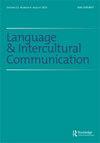民族主义:对批判性跨文化交际的威胁还是机遇?
IF 2.2
1区 文学
0 LANGUAGE & LINGUISTICS
引用次数: 0
摘要
在为2021年的这期特刊制定主题和问题时,我们无法预料到这个项目会变得多么及时,因为我们的工作汇编了我们的贡献者的论文,与针对俄罗斯在2022年2月24日入侵乌克兰而出现的民族主义的政治和知识辩论并行。正在进行的乌克兰战争标志着欧洲超过75年没有国际冲突的历史的终结,强化了民族主义话语、意识形态立场、敌人形象和军事演习,而当代欧洲人已经将这些与遥远的暴力过去联系在一起。乌克兰提醒我们,当民族主义思想被弗拉基米尔•普京(Vladimir Putin)等政治领导人劫持,以团结民众对抗共同敌人时,民族主义是多么危险。普京的“大俄罗斯”针对的是一个共同的种族、宗教、历史和语言;其中包括克里米亚半岛、乌克兰东部部分地区和爱沙尼亚讲俄语的部分地区,等等;这与Michael Billig(1995)和Anthony Smith(1991)在20世纪90年代提出的“热门”或“种族”民族主义相呼应(Leoussi, 2016)。然而,来自乌克兰的每日报道也向我们展示了“我们”国家的概念如何提供了共同的目标和力量,激励公民站起来捍卫他们想象中的社区(Anderson, 1991)。美国知识分子弗朗西斯·福山(Francis Fukyama)在2022年5月写道,乌克兰人的斗争表达了他们对“一个独立、自由民主的乌克兰”的忠诚(第3页),坚持认为“自由主义需要这个国家”。与比利格一样,福山承认存在多种形式的民族主义和民族认同——“社会可以在其中进行选择”(第9页)。福山的评论出现在他著名的“历史的终结”宣言(1989年)的33年后,这将带来西方式民主和意识形态自由主义被普遍接受的时代。一个全球原则和团结的时代不需要国家、民族文化和民族主义,用英国历史学家埃里克·霍布斯鲍姆(Eric Hobsbawm, 1990,第182页)的话来说,这些可能会让位于“全球新的超国家重组”。在接下来的二十年里,知识分子将全球化视为一种取代国家的现象,这一观点在社会科学领域占据主导地位,包括社会学、人类学、国际关系和跨文化教育。2007年,德国著名社会学家乌尔里希·贝克(Ulrich Bech)对“方法论民族主义”发出了这样的警告:本文章由计算机程序翻译,如有差异,请以英文原文为准。
Nationalism: threat or opportunity to critical intercultural communication?
When formulating the theme and question for this special issue in 2021, we could not have anticipated how timely this project would become, with our work compiling the papers from our contributors running parallel to the political and intellectual debates on nationalism that emerged in response to Russia’s invasion of Ukraine on February 24, 2022. The ongoing war in Ukraine marked the end of more than 75 years without international conflict in Europe, reinforcing nationalist discourses, ideological positions, enemy images and military manoeuvrings that contemporary Europeans had come to associate with a distant, violent past. Ukraine reminded us of the dangers of nationalism when the idea is hijacked by political leaders, such as Vladimir Putin, to unite the population against a common enemy. Putin’s ‘greater Russia’ speaks to a common ethnicity, religion, history and language; which includes the Krim peninsula, parts of Eastern Ukraine, and Russian-speaking parts of Estonia, to name a few; echoing the ‘hot’ or ‘ethnic’ nationalism identified by Michael Billig (1995) and Anthony Smith (1991) in the 1990s (Leoussi, 2016). Yet daily reports from Ukraine also showed us how the idea of ‘our’ nation provided the common purpose and power that motivated citizens to stand up and defend their imagined community (Anderson, 1991). Writing in May 2022, the American intellectual Francis Fukyama declared the Ukranians’ struggle an expression of their loyalty to ‘an independent, liberal democratic Ukraine’ (p. 3), insisting that ‘liberalism needs the nation’. Like Billig, Fukuyama accepts that there are many forms of nationalism and national identification – and that ‘societies can exercise agency in choosing among them’ (p. 9). Fukuyama’s comment appears thirty-three years after his famous proclamation of ‘the end of history’ (1989), which would bring about the era when Western-style democracy and ideological liberalism became universally accepted. An age of global principles and solidarity had no need for nations, national culture, and nationalism, which, in the words of British historian Eric Hobsbawm (1990, p. 182), might consequently give way to ‘the new supranational restructuring of the globe’. Over the next twenty years, intellectuals’ representation of globalisation as a phenomenon that had superseded the nation became dominant in the Social Sciences, including Sociology, Anthropology, International Relations, and Intercultural Education. In 2007, the eminent German sociologist Ulrich Bech thus issued this warning against ‘methodological nationalism’:
求助全文
通过发布文献求助,成功后即可免费获取论文全文。
去求助
来源期刊

Language and Intercultural Communication
Multiple-
CiteScore
3.00
自引率
47.40%
发文量
50
期刊介绍:
Language & Intercultural Communication promotes an interdisciplinary understanding of the interplay between language and intercultural communication. It therefore welcomes research into intercultural communication, particularly where it explores the importance of linguistic aspects; and research into language, especially the learning of foreign languages, where it explores the importance of intercultural perspectives. The journal is alert to the implications for education, especially higher education, and for language learning and teaching. It is also receptive to research on the frontiers between languages and cultures, and on the implications of linguistic and intercultural issues for the world of work.
 求助内容:
求助内容: 应助结果提醒方式:
应助结果提醒方式:


